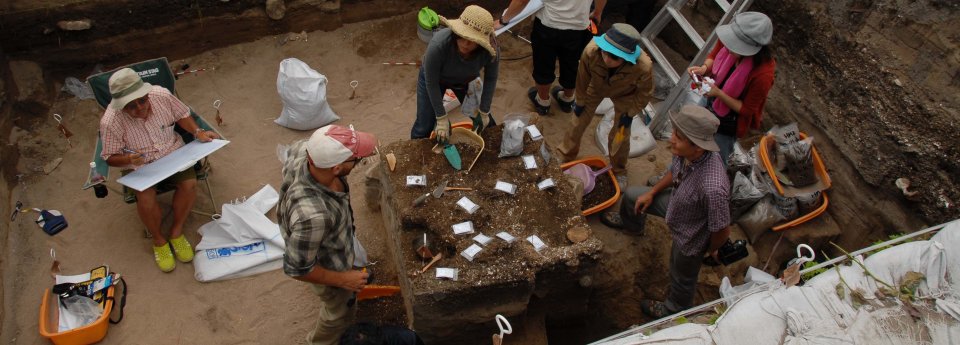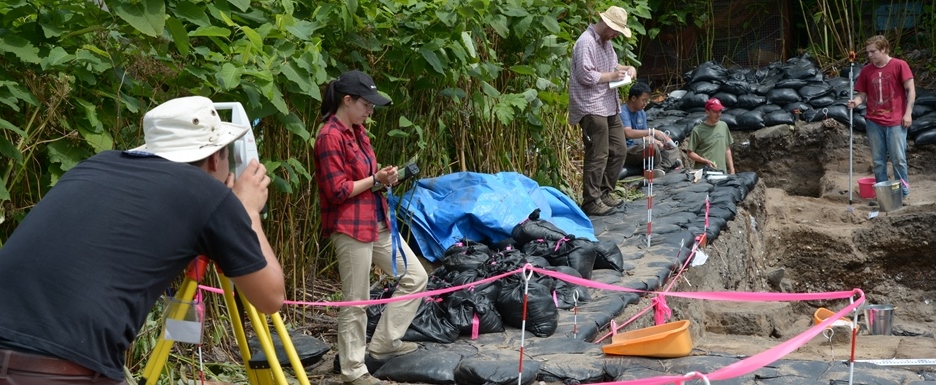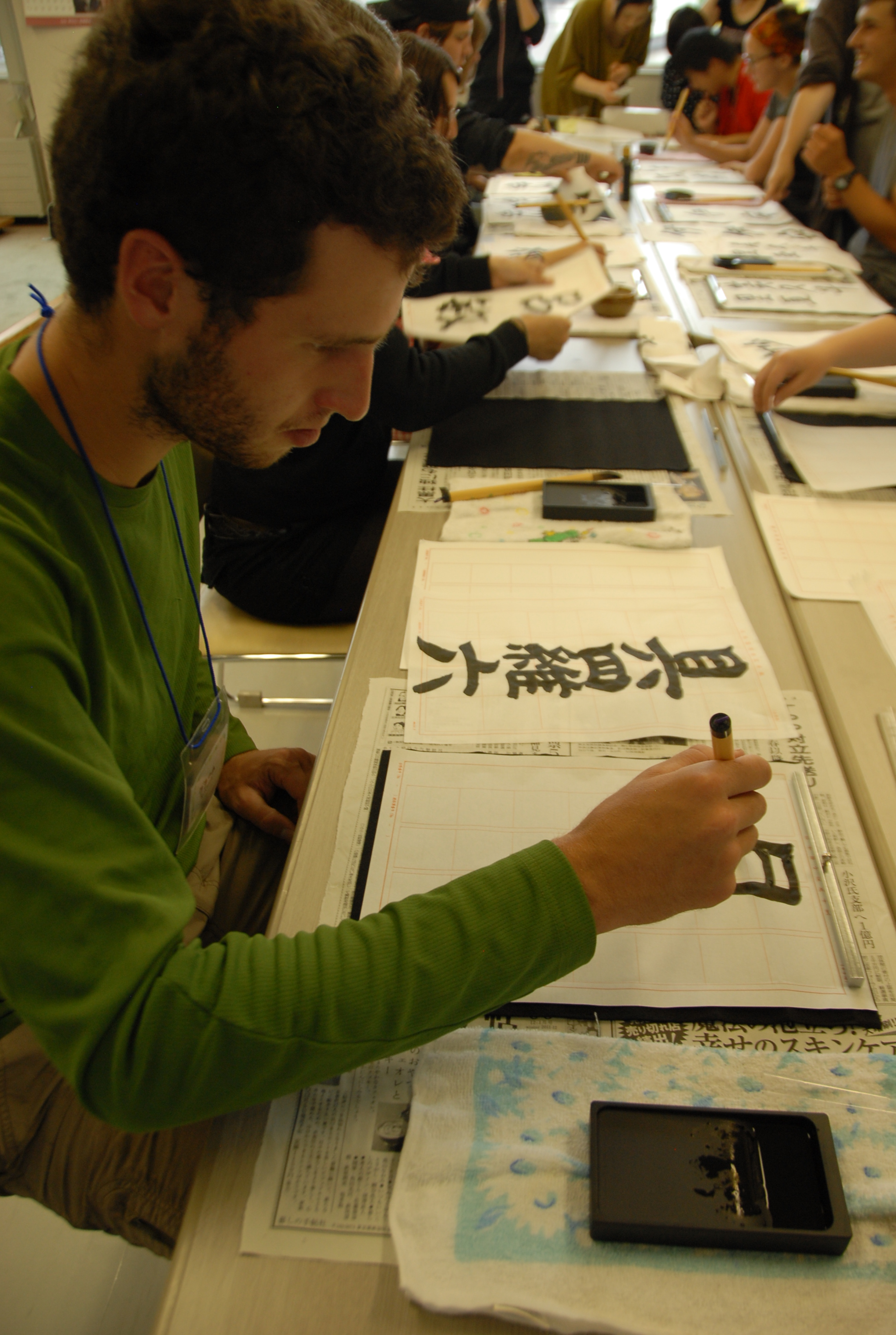





Previous Field Work
|
Previous Field Work: Rebun Island, Japan (2011-2017)(Check out the Hamanaka 2 Project Blog)The Baikal-Hokkaido Archaeology Project is a joint venture between the University of Alberta (Canada) and Hokkaido University (Japan) with the involvement of several international partners. Fieldwork on Rebun involved the excavation of the Hamanaka 2 site and preliminary ground penetrating radar (GPR) work at the nearby Funadomari site. The Funadomari site is a large sand dune located in the town of Funadomari, between Funadomari Bay and Lake Kushu at the northern end of Rebun Island. Previous excavations of the site have revealed two grave clusters, each with 10 to 12 individuals. Hamanaka 2 is a one to two kilometer hike from Funadomari. It is a multi-component shell midden with graves ranging in age from the Ainu to Jomon periods. Sakaguchi (2007) has suggested that the site was first used by Late Jomon (~1500 BC) maritime hunter-gatherers as a campsite for intensive pinniped hunting & processing, while it was used as a human burial area and dog butchering site during the more recent Okhotsk period (AD 500- AD 1000). Participants in the BHAP excavations received intensive training in a variety of fieldwork methods including: excavation and documentation techniques, data collection protocols, artifact processing, topographic survey, GPR, and the identification, removal, and curation of human and non-human osteological material. In addition to site work, in past seasons we were able to organize a number of extracurricular "cultural experiences" for students, including: a Japanese tea ceremony, calligraphy lessons, Taiko drumming, hikes and nature walks, museum trips, and local festivals.
STUDENT EXPERIENCES ON REBUNField school was not only a great learning opportunity but an amazing life experience. The site had so much to offer and the people there were wonderful. I learned so much and loved every second of it. I can say with certainty that this field school was one of the best experiences and opportunities I have had the pleasure to take part in. Field school is over Field school is an amazing experience. You learn a lot and meet some fantastic people in the process. It was the most challenging and rewarding experience I have ever had. The BHAP cultural experience was unlike anything I have ever experienced. The local food and accommodations were unparalleled in my many years of travelling in eastern Asia, and the hospitality of the staff were simply amazing...I would encourage any knowledge-hunter to apply for the BHAP project and advise them to prepare themselves for the adventure of a lifetime. I truly enjoyed becoming part of so many locals' lives and experiences, all the while learning hands-on archaeological skills. The whole Rebun experience was very special, very different from a typical 'Japan experience'. You really got to know how rural Japanese people live day to day and got to experience some great traditions.
REFERENCESNishimoto T, editor. 2000. Hamanaka 2 Iseki Hakkutsu Chosa Hokokusho [Report on the Research Excavation at the Site of Hamanaka 2]. Bulletin of the National Museum of Japanese History 85, Sakura (in Japanese). Nishimoto T, editor. 2000. Rebun Cho Funadomari Iseki Hakkutsu Chosa Hokokusho [Report on the Excavation at the Site of Funadomari]. Rebun Cho Kyoiku Iinkai, Rebun (in Japanese). Sakaguchi T. 2007. Refuse patterning and behavioral analysis in a pinniped hunting camp in the Late Jomon Period: A case study in layer V at the Hamanaka 2 site, Rebun Island, Hokkaido, Japan. Journal of Anthropological Archaeology 26: 28-46. |



